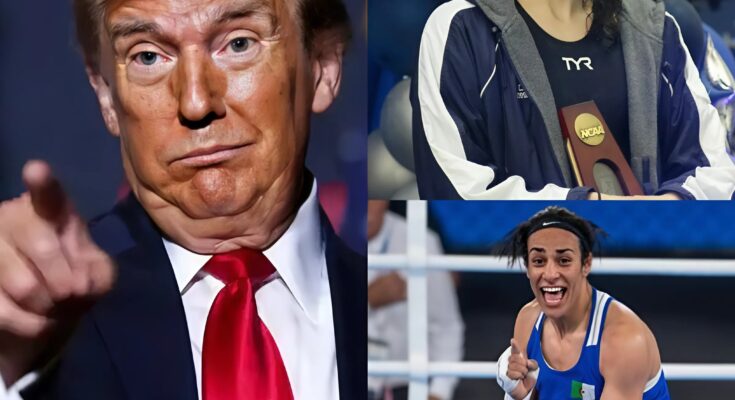SHOCKING DECISION: US President Signs Executive Order Banning Transgender Athletes from Participating in Women’s Sports – ‘Equity Must Be Restored’
In a landmark and controversial move, President of the United States, [Insert President’s Name], has signed an executive order banning transgender athletes from competing in women’s sports. The sweeping decision, announced on February 23, 2025, has sparked intense debate and divided public opinion across the country. The President stated that the executive order is designed to “restore equity” in women’s athletics and ensure fair competition, which the administration claims has been compromised by the participation of transgender women in female sports.
The executive order applies to all federally funded schools, universities, and sports organizations, compelling them to implement policies that restrict transgender women from competing in women’s sports. Under this new directive, any sports team, league, or organization receiving federal funding must comply with the ban, which is framed as a necessary action to protect the integrity and fairness of women’s sports.
In a speech following the signing of the order, the President emphasized the importance of safeguarding “level playing fields” for female athletes. “Equity must be restored in women’s sports,” the President declared, arguing that transgender women, due to biological advantages associated with male puberty, can have a disproportionate edge in athletic performance. “This decision is about ensuring that women’s sports remain fair, competitive, and inclusive for all cisgender female athletes,” the President added.
The order has ignited a firestorm of controversy, with advocates for transgender rights strongly condemning the decision as discriminatory and harmful. LGBTQ+ organizations have argued that the ban is an infringement on the rights of transgender individuals, particularly transgender youth, and is a direct attack on their ability to participate in sports on an equal footing. Critics of the decision claim that it perpetuates stigma and exclusion for transgender people and undermines the progress made in recent years toward inclusivity in athletics.
“Transgender individuals, especially transgender youth, have the right to engage in sports just like anyone else,” said [Name], a spokesperson for one of the major LGBTQ+ advocacy organizations. “This executive order not only violates their fundamental rights but also creates an environment of fear and exclusion.”
On the other hand, those who support the executive order argue that fairness in competition is paramount and that the physical advantages of transgender women – such as muscle mass and bone density – provide an unfair edge in many competitive sports, particularly in strength-based events. They assert that transgender women, even after transitioning, retain inherent physical advantages that disrupt the competitive balance in women’s sports.
The order comes at a time when similar legislation has been introduced in numerous states, with some states already passing laws banning transgender women from competing in women’s sports at the high school and college levels. However, the federal government’s decision to enact a nationwide policy is unprecedented, raising new questions about the role of the federal government in regulating sports and gender participation.
While the executive order is seen by some as a victory for those advocating for the preservation of women’s sports, it is expected to face legal challenges from civil rights groups. Legal experts suggest that the ban could be contested in court, potentially leading to a lengthy battle over the interpretation of civil rights laws and gender identity in the context of sports.
As this story develops, the nation’s conversation about gender identity, athletics, and fairness is likely to intensify. Whether this executive order will set a national precedent or spark a broader movement toward further restrictions on transgender athletes in sports remains to be seen. What is certain is that the issue of transgender participation in women’s athletics is one that will continue to fuel debates about equality, fairness, and human rights across the country.
The future of transgender athletes in American sports has now become a central focus, with strong opinions and legal challenges expected to shape the direction of this policy for years to come.



)

